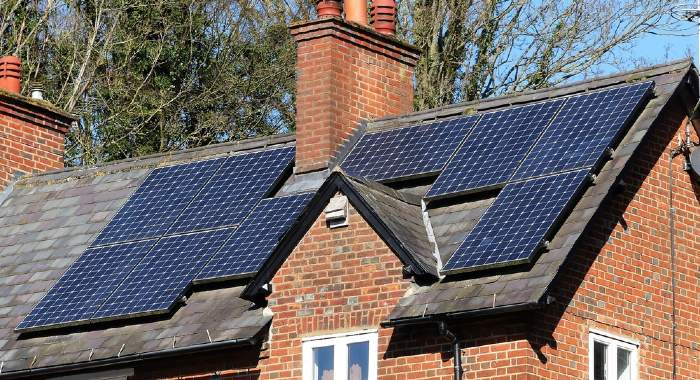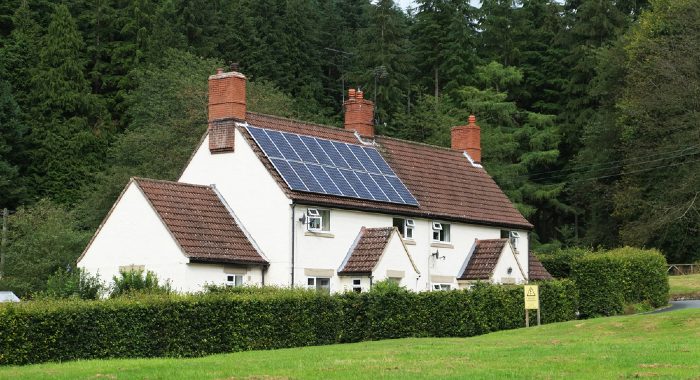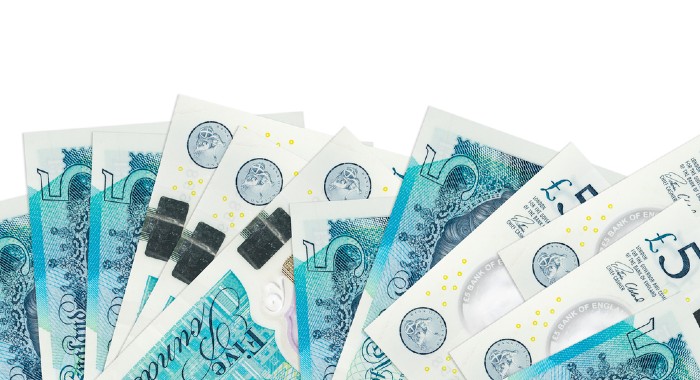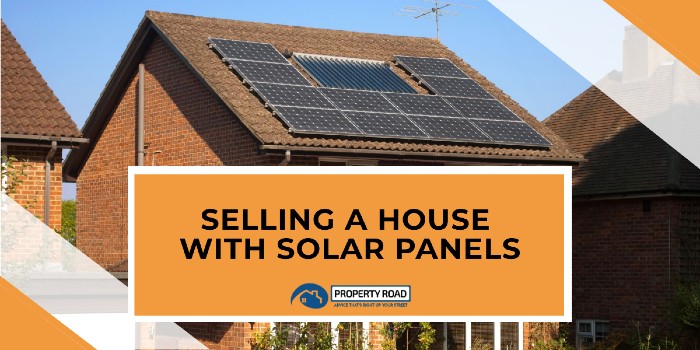For anyone selling a house with solar panels, there are some issues to consider first because not every potential buyer will want to take on the prospect of dealing with a property that has panels installed.
If you were one of the many people who helped to fuel a boom to install solar panels on your property, then you may have earned money but there may be issues when it comes to selling your home.
There’s no doubt that solar power has been a popular choice with many people looking to enjoy Feed-in-Tariff (FiT) payments and also enjoy free electricity.
But should you want to sell your home with solar panels, you need to understand:
- Do you own the panels?
- Does a third party lease the roof for the panels?
Knowing the answer to either of these questions is crucial because the answer to the first question means that selling your home is easier.
But, as we will explain, if your roof space is being leased by a solar firm then you may find that a potential buyer may struggle to get a mortgage as lenders may refuse to lend.
Solar panels – what you need to know
There are many houses in the UK with solar panels on the roof and one reason for this is that the government paid a potentially lucrative Feed-in-Tariff rate, so the homeowner enjoyed free electricity – and low energy bills – whenever the sun was shining.
And they picked up an annual cheque for generating electricity.
So far, so good.
However, installing solar panels can be an expensive undertaking with the average installation costing £10,000.
But a home with solar panels or solar PV, can create issues when you want to sell your property.
If you did not pay for the solar power panels to be installed, you may have been tempted by offers to have the panels installed for free to get free electricity – and possibly a share of the Feed-in-Tariff payments.
You will be sharing the payments with a company that is effectively leasing your roof space for many years.
This will become apparent when you get an estate agent to visit your home to determine how much it’s worth because they will want to know whether you own the solar panels, or whether your roof is leased.
Selling A Property? FREE Step-By-Step Platform
Expiry of the Feed-in-Tariff (FIT)
The Government backed Feed-in-Tariff ended in April 2019. Any solar panels installed after this date will not be eligible for payments under the scheme.
However, don’t despair if you are considering adding panels or are looking to buy a property that installed them after this date. In January 2020 a new scheme was launched called the Smart Export Guarantee (SEG) which effectively replaced the FIT.
While not quite as lucrative, it allows homeowners unable to take advantage of a FIT a way to earn money back from the unused energy they export back to the grid.
Selling a home with solar panels

If you own the solar panels then you will find that:
- Solar panels usually increase the value;
- The solar PV installation will make your home more attractive to many buyers;
- The solar panels may create a quicker sale.
The big attraction for solar panels – in addition to enjoying free electricity and the FiT payments – is that they are seen as being environmentally friendly. And that’s attractive to a potential buyer.
Benefits for a potential new homeowner
In discussions with your estate agent, you will need to ensure that they will market the benefits of having solar PV to any potential buyer. That’s because:
- A buyer will enjoy the potential of future FiT payments;
- Panels help provide protection against growing energy prices;
- Deliver a better energy efficiency rating (EPC) for the property;
- Bring lower electricity bills.
All of these issues are important when selling a property, but only if you own the solar array.
What happens to the FiT payments?
One of the important questions when selling a property with a solar panel installation is what happens to the remaining Feed-in-Tariff payments.
Normally, the tariff will apply for 25 years and, in most cases, these agreements can be transferred to your home buyer.
The home buyer will then become the system’s new owner and you need to tell them how long is left on the agreement so they can calculate how many years of income they will enjoy.
You may need to pay an additional charge to your chosen conveyancing solicitor to deal with the legal issues and paperwork around solar panels.
What documentation will a buyer need?
When you have a solar panel installation, there will be documentation that you will need to hand over to whoever buys your property. Among these will be:
- The Microgeneration Certification Scheme (MCS) certificate;
- The installation firm’s details;
- The electrical installation certificate;
- The planning permission/building regulation permission consent;
- The system components’ warranties.
The potential buyer may also want to carry out a structural roof survey and if the property is leasehold, then you need to show the permission you received from the freeholder for the panels to be installed.
My solar panels were free – what do I do?

In the boom days for solar panel installations, there were many firms offering to install solar panels for free.
As we all know, nothing is free and the firm installing the panels would be taking the FiT payment – or most of it – and leaving you to enjoy free electricity whenever the sun was shining.
Essentially, the firm has leased the roof space and it is they who own your PV system.
This means there could be an issue when selling your property and you should have your solicitor check very carefully the lease details.
You may also find that the original leasing company has since gone bust and the lease has been transferred to another business.
Can I take my solar panels with me?
If you own the solar panels, then you are free to take them with you and install them at your new property.
However, you will also need to understand that having the panels removed and reinstalled can be an expensive undertaking.
You will also need to leave the roof in a good condition, so it is better to begin negotiating a price for the solar panels with a potential buyer, rather than take them away.
Cleaning and servicing solar panels
It will bring peace of mind to a potential buyer that you have cleaned and serviced your solar panels before they buy your property.
This will mean that the panels are working in peak condition and they will also look great too.
The expected lifespan for solar panels is usually 25 years, but they need to be maintained on a regular basis to ensure they generate the expected levels of electricity.
If not, they may not be working effectively and after 25 years they become less efficient which will, in turn, make them less attractive to a potential buyer.
Who will be responsible for the solar panels?
When you sell your home complete with solar panels, the maintenance and cost of repairs will be the new homeowner’s responsibility.
Be aware, that you should service your solar panels regularly and should check that the inverter is working effectively as it may need replacing after 15 years.
The price for a new inverter is around £1,000 so this needs to be considered.
Can I transfer my Feed-in-Tariff payments?

As the homeowner you can transfer the Feed-in-Tariff payments to your buyer, but they’ll need to know how much time remains on the contract.
Contacting the energy supplier is easy to request the transfer payments to the new owner.
Issues with buying a home with solar panels
So far, we have mentioned the positives of having solar panels installed and that there are lots of homes in the UK that have had them working effectively to generate a small income every year.
However, some drawbacks over the installation of solar PV have become apparent.
The main one is that some mortgage lenders will have an issue with your roof being leased to a solar power company and not owned by the homeowner outright.
In the process of selling, the potential buyer will need to check with their mortgage lender to ensure that they can access a mortgage to buy your home.
The potential buyer will also need to appreciate:
- Many of the solar power firms that installed solar panels have stopped trading and finding out who currently owns an installation can be difficult;
- The installation company may have signed over the panels to an agent and there’s a chance that they may charge an admin fee when your property is sold;
- A solicitor will need to check the lease terms to see whether the homeowner needs consent from the installation company over whether they can extend the property – or even sell it.
This last point is very important, particularly if the installation firm has stopped trading because whoever owns the property may have to pay compensation should the solar panels be removed, or if they are removed temporarily so roof repairs can be carried out.
Your solicitor will need to check the contract carefully to see whether there are any clauses that may put off a potential buyer.
It’s also worth highlighting that the clauses may indicate that the solar installation company has rights to lease your roof space indefinitely. This means they can extend the lease period beyond the usual 25-year term, if they choose to do so.
Selling a house with solar panels
Essentially, when you are selling a house with solar panels, you will undoubtedly attract potential buyers interested in being environmentally friendly and to enjoy free electricity.
The downside for solar panels is that there will be more paperwork for you to provide, and if the panels are leased, you may struggle to find a buyer who can access a mortgage.
Whether you own or lease your solar panels, you should from the very beginning provide your estate agent with the relevant information for a potential buyer so there are no unnecessary delays in the house selling process.





